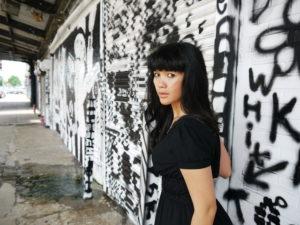

In The Queen, a wife in a "frumpy nightgown" gets her own back on her philandering husband, Herjuno, a man who knows only two types of women, "those who were virgins and those who were not".

Spare a thought for poor businessman Bambang, who's found asphyxiated in his favourite car, a red 1982 Mercedes Tiger, after interfering in his wife's relationship with houseboy Jamaal. Still, there is plenty within Apples & Knife to keep readers entertained, particularly the Roald Dahl-esque tales that turn the tables on villainous male characters in inventive and sometimes grotesquely funny fashion. The undertones of rage that make the opening stories so compelling feel frenzied and disordered later on as tangents take over from character and plot. The Indonesian writer lacks the style and finesse of a Carter or Jackson, with many of her stories coming to abrupt endings after characters meet their unfortunate fates. There is a commendable fierceness to the writing, though comparisons to the gothic horror mastery of Angela Carter are exaggerated. Now living in Sydney, Paramaditha lectures in film and media studies at Macquarie University and many of the stories in her collection have a cinematic quality to them with atmospheric writing and high-octane plots. Some of the stories have appeared in the author's two previous collections, but Apple and Knife is her first book to be published in the UK and Ireland. Intan Paramaditha's collection Apples & Knife is a mix of horror fiction, myths and macabre fairy tales that uses the supernatural to comment on the way women are mistreated in her homeland of Indonesia. At the heart of Haunting is an unhappy marriage and a woman trapped in a stifling domestic situation that infects her mental and physical health, a story made all the more poignant for the fact that its author suffered from crippling agoraphobia herself in the wake of publication. The power of the genre lies not in the shock effects – though viewers have apparently responded to the series with everything from fainting to vomiting – but in the way it uses an irrational or otherworldly space to reflect on the fears of our own society. With Netflix's recent adaptation of Shirley Jackson's classic The Haunting of Hill House, horror fiction and supernatural tales are back in vogue.


 0 kommentar(er)
0 kommentar(er)
